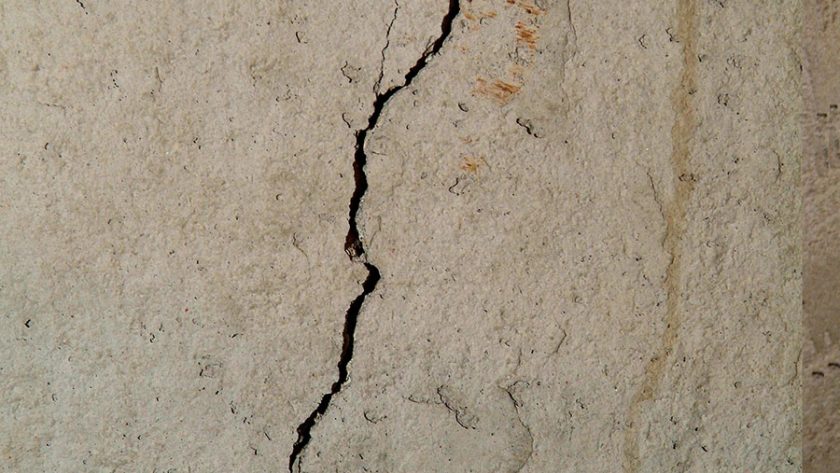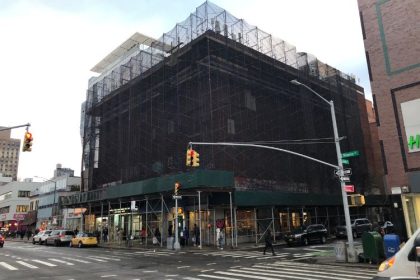A given component of homeownership is home maintenance. Just as your home was built from the ground up so too do your home’s maintenance requirements. Learning how to properly maintain your foundation to prevent wall cracks is an excellent ground-level starting point!
Wall cracks are common in many homes but you can get ahead of this curve simply by being proactive about the condition and well-being of your home’s foundation.
Keeping the water around your home moving to where it needs to be, monitoring soil conditions around your foundation, and noticing any changes in your home’s structure are some key points to properly maintaining your foundation to prevent those foundation wall cracks from forming.
In this post, you will learn how to properly maintain your foundation to prevent wall cracks and how to get professional wall crack repair from the team at Drycrete Waterproofing.
Why Do I Need Wall Crack Repair?
Houses settle. Plain and simple. There hasn’t been a single house built that did not experience some level of settling.
Another fact about houses that settle is they do not settle evenly. One side or corner will always settle a bit quicker than the rest of the house. This ‘flexing’ action in your home’s foundation simply points to one thing. Your foundation walls will crack during this settling process.
At some point, if left unattended your home’s foundation will crack to the point that water will begin seeping in and destroying the integrity of your foundation.
The foundation of your home will benefit from a regimen of maintenance that includes;
- Assessing the condition of your foundation monthly and paying special attention to any newly formed wall cracks
- Examining the grade around your home as the water needs to be properly diverted to prevent water damage from cracked walls
- Identify and address any water damage do not let a small problem become a major renovation!
- Be consistent in keeping tabs on your foundation!
Missing any key point of staying on top of the condition of your foundation will lead to needing foundation wall crack repairs.
An ounce of prevention as they say!
Assessing Your Foundation for Wall Cracks
Whether you are dealing with Structural or Non-Structural Cracks, understanding the type of cracks you observe is essential in implementing effective maintenance strategies. Structural cracks indicate potential issues with the foundation that require immediate attention, while non-structural cracks may be superficial but still demand a proactive approach to prevent further damage.
To ensure the structural integrity of your home, it’s crucial to address any Cracks in Walls promptly. Ignoring these signs could lead to more extensive and costly repairs down the road. So, take the time to inspect your foundation regularly and, if necessary, consult with a professional to assess and address any concerns.
Just like your health issues, foundation wall cracks are all about early detection.
If the thought of inspecting your home’s foundation seems a bit overwhelming, relax. If you know what to look for and the key areas to pay attention to then you have practically performed the inspection all by yourself!
Take a look at this graphic to get an idea of the key points to inspect for foundation wall cracks.
Preventing Wall Cracks With Proper Maintenance
Conditions inside and outside of your home play a role in the proper maintenance of your home’s foundation.
Keeping ahead of potential damage with proper maintenance might include the following key points.
- Interior humidity levels are properly maintained
- Exterior water properly diverted
- Soil conditions around your foundation monitored
- Noticing any structural changes
So far you have seen and read what to look for when problems arise that lead to foundation wall crack repairs.
Now let’s look at how to get a professional involved and get ahead of any problems.
Wall Crack Repairs With DRY-SEAL 5000 Flexible Resins
In your monthly foundation maintenance regimen, you have discovered a potential crack forming in your foundation and you have called Drycrete.
What’s next?
The team from Drycrete has assessed your foundation and they are about to perform a wall crack repair with DRY-SEAL 5000 Flexible Resin.
What is DRY-SEAL 5000 Flexible Resin?
DRY-SEAL 5000 is a two-part resin that can be injected into the foundation wall crack. It contains fast-acting high tensile strength polymers that penetrate the crack forming an elastic custom seal throughout the thickness of the wall.
DRY_SEAL 5000 Flexible Resing has proven to be effective in stopping all types of water leaks through concrete and even steel!
DRY-SEAL 5000 Flexible Resin Can Help Prevent Foundation Wall Cracks
Because DRY-SEAL 5000 stays flexible even through freeze and thaw cycles it prevents existing cracks from becoming big remodeling projects!
Advantages of Using DRY-SEAL 5000 Flexible Resin
DRY-SEAL 5000 Flexible Resin installed by Drycrete Waterproofing;
- Is used by waterproofing professionals at Drycrete with over 30 years of experience in the waterproofing industry!
- Maintains your home investment by keeping your foundation cracks from becoming foundation issues!
- Is a quick and efficient solution to foundation wall crack repair!
- Eliminates the need for costly landscaping to ensure the health of your foundation!
- DRY-SEAL 5000 Flexible Resins are environmentally friendly, unlike some other foundation resins on the market!
DRY-SEAL 5000 Flexible Resin installed by Drycrete Waterproofing is a win-win for your foundation wall crack repair needs!
Drycrete Waterproofing and Your Foundation Maintenance
In addition to utilizing the DRY-SEAL 5000 Flexible Resins for foundation wall crack repair, Drycrete Waterproofing can provide you with professional foundation maintenance techniques such as;
- Regular foundation inspections
- Regular cleaning and sealing of joints
- Implementing foundation supports if need be
Keeping your foundation in good health requires a bit of diligence on your part. Stay ahead of potential foundation wall crack repair issues by keeping Drycrete as your professional foundation specialist.





